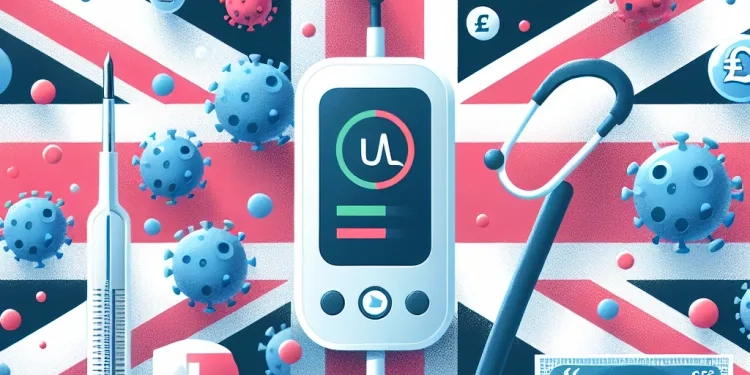
Find Help
More Items From Ergsy search
-
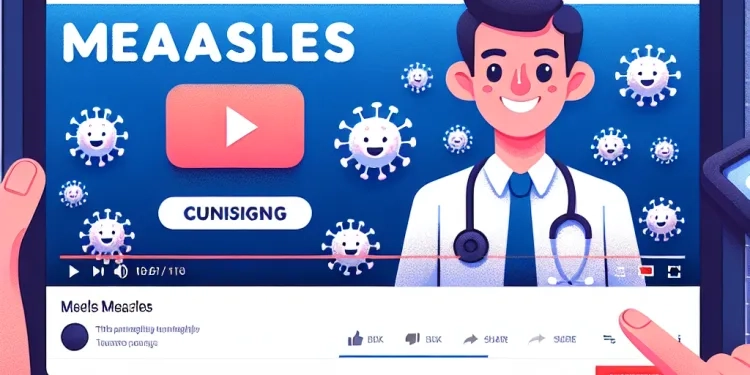
Measles
Relevance: 100%
-

Is there a treatment for measles?
Relevance: 95%
-

Is there a treatment for measles?
Relevance: 95%
-
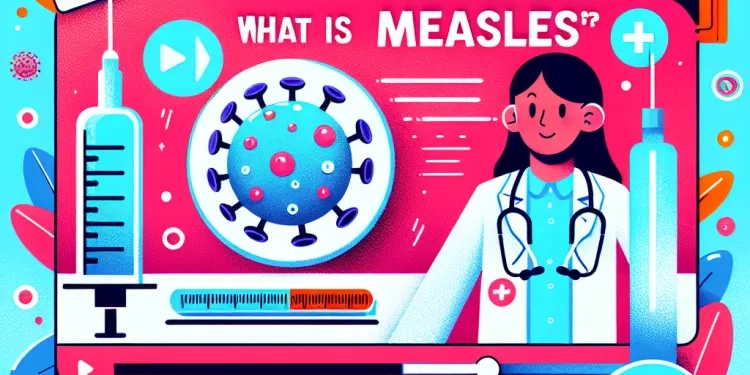
What is measles?
Relevance: 94%
-

How is measles transmitted?
Relevance: 91%
-

What are the symptoms of measles?
Relevance: 91%
-

How contagious is measles?
Relevance: 91%
-

Can measles be serious?
Relevance: 91%
-

How is measles transmitted?
Relevance: 91%
-

How is measles spread?
Relevance: 90%
-

Are measles outbreaks common in the UK?
Relevance: 90%
-

Can measles be treated?
Relevance: 90%
-
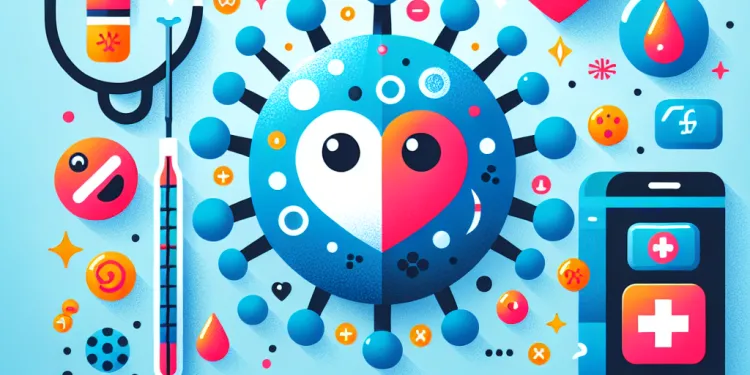
What are the symptoms of measles?
Relevance: 90%
-

Are measles cases rising in the UK?
Relevance: 90%
-

Is Rubella the same as measles?
Relevance: 90%
-

What are the symptoms of measles?
Relevance: 90%
-
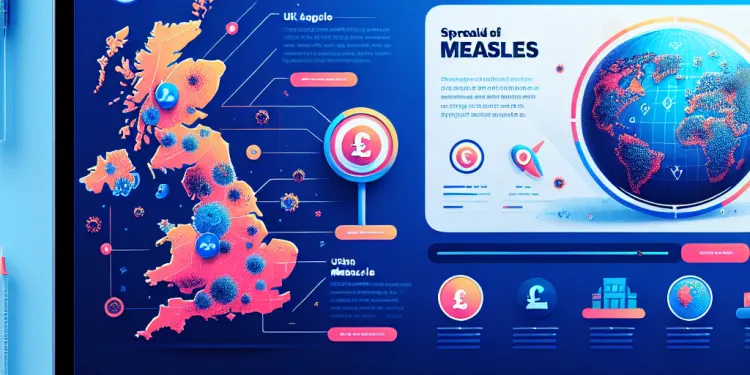
Are measles more common outside of the UK?
Relevance: 87%
-

Can measles cause complications?
Relevance: 87%
-

Are adults in the UK at risk from measles?
Relevance: 86%
-
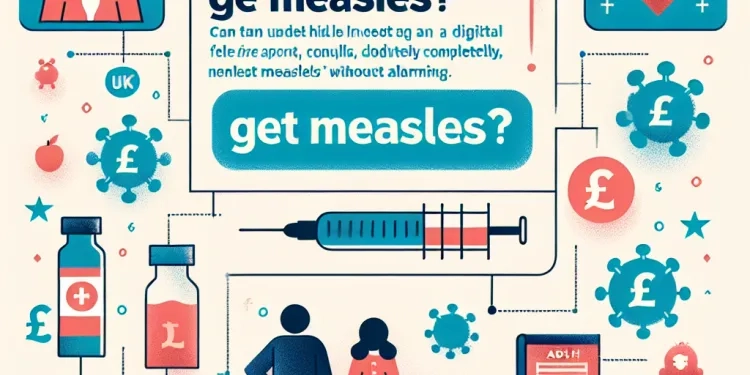
Can adults get measles?
Relevance: 86%
-

Why is measles less common in the UK?
Relevance: 86%
-
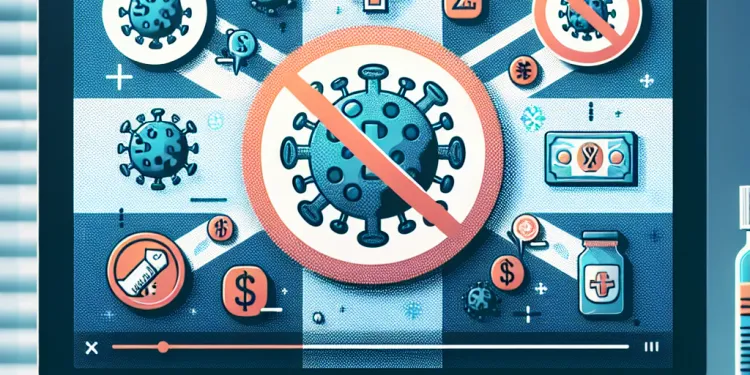
How can measles be prevented?
Relevance: 86%
-

Are measles cases currently rising in the UK?
Relevance: 86%
-
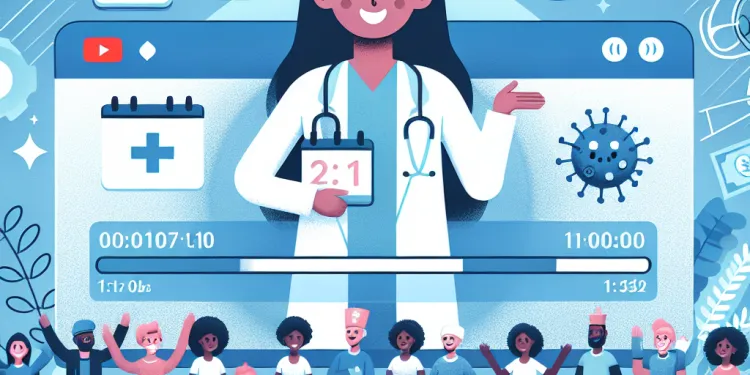
How long is a person with measles contagious?
Relevance: 84%
-

Who is most at risk from measles?
Relevance: 84%
-
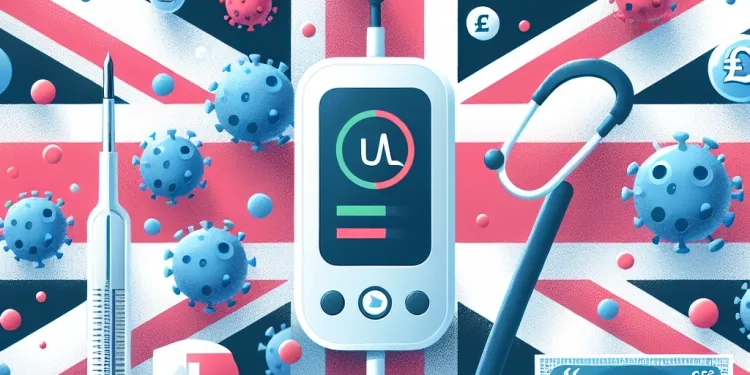
What should I do if I suspect I have measles?
Relevance: 84%
-

How does the UK monitor measles outbreaks?
Relevance: 84%
-

Why are measles outbreaks still occurring?
Relevance: 84%
-

What is causing the rise in measles cases in the UK?
Relevance: 83%
-
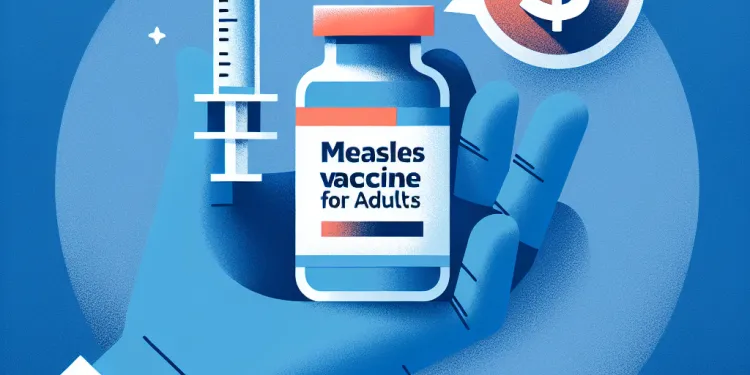
Can the measles vaccine be given to adults?
Relevance: 83%
-
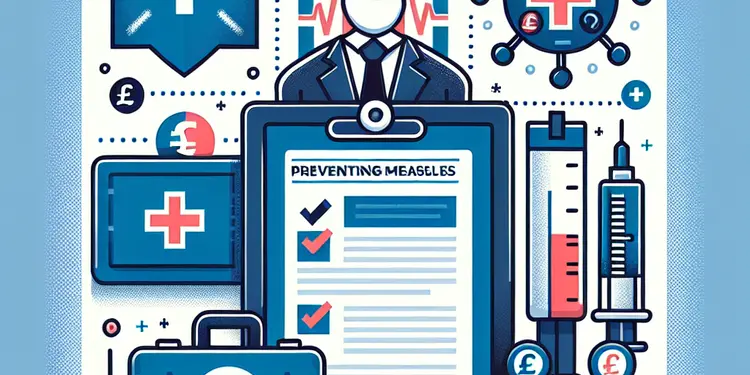
How can measles outbreaks be prevented?
Relevance: 83%
-

What complications can arise from measles?
Relevance: 82%
-

Which countries have higher rates of measles?
Relevance: 82%
-

What is the current measles vaccination coverage in the UK?
Relevance: 82%
-

How does vaccination affect measles rates?
Relevance: 81%
-

Is there a risk of global spread if measles cases rise in the UK?
Relevance: 81%
-

Is it necessary to get a measles vaccine before travelling?
Relevance: 81%
-
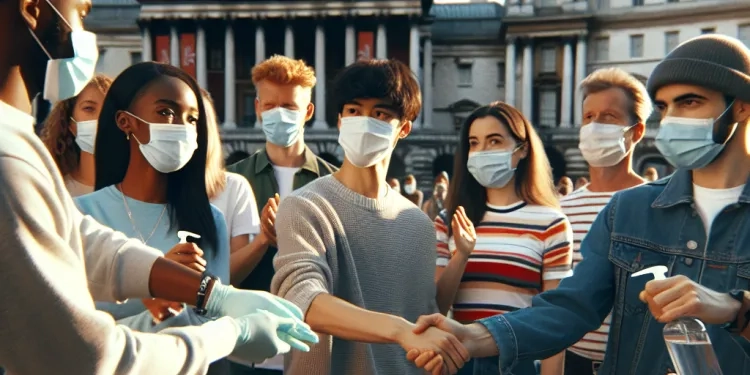
What should you do during a measles outbreak?
Relevance: 80%
-

Why has the UK lost its measles elimination status?
Relevance: 80%
-
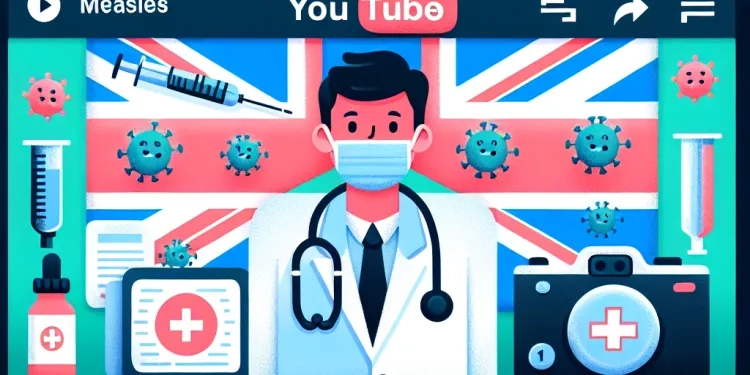
Can you get measles more than once?
Relevance: 79%
What to Do If You Suspect You Have Measles
Recognize the Symptoms
If you suspect you have measles, it's important to first identify common symptoms. Measles often begins with cold-like symptoms, including a high fever, cough, runny nose, and conjunctivitis (red, watery eyes). A distinctive rash typically follows a few days later, starting on the face and neck before spreading to the rest of the body.Seek Medical Advice
In the UK, you should contact your GP or call NHS 111 for advice if you think you have measles. It's crucial to describe your symptoms accurately. Do not visit your GP surgery, pharmacy, or hospital without calling ahead, as measles is highly contagious, and you might unknowingly spread the virus in waiting areas. Medical professionals will guide you on the next steps, which may include a visit or home monitoring.Stay Isolated
Isolation is vital to prevent the spread of measles, as it can spread through respiratory droplets. Stay at home, avoid public places, and limit contact with others, especially those who are not vaccinated, pregnant women, infants, and individuals with weakened immune systems.Understand the Importance of Vaccination
If you or members of your household are not vaccinated, it's essential to understand the role of the MMR (measles, mumps, and rubella) vaccine. Vaccination is the best protection against measles. If you're unsure about your vaccination status, check with your GP. If you are interacting with anyone non-vaccinated or at high risk, the GP may advise immediate steps to prevent transmission.Monitor Your Health
Keep a close watch on your symptoms. Most measles cases resolve with rest and supportive care, but complications like pneumonia, ear infections, or more severe problems can occur. If your symptoms worsen or you develop complications, seek medical attention immediately. Rest, hydration, and over-the-counter pain relievers may help manage symptoms.Educate Yourself and Others
Understanding measles and its prevention helps protect you and your community. Share accurate information and encourage vaccine uptake. Follow guidance from NHS and reputable health organizations. Stay informed about outbreaks or alerts in your area and adhere to public health recommendations. Following these steps will help protect you and those around you from measles, ensuring a swift recovery and minimizing the spread of this infectious disease.What to Do If You Think You Have Measles
Know the Signs
If you think you have measles, it’s good to know what signs to look for. It often starts like a cold. You might have a high temperature, a cough, a runny nose, and sore, red eyes. After a few days, a rash usually appears. It starts on your face and neck, then spreads over your body.Ask a Doctor for Help
In the UK, if you think you have measles, call your doctor or NHS 111. Tell them your symptoms. Do not go straight to a doctor’s office, pharmacy, or hospital without calling first. Measles spreads easily, and you could give it to others. The doctor will tell you what to do next. This might include visiting or staying at home.Stay at Home
Staying at home stops measles from spreading because it moves through the air when you cough or sneeze. Do not go to busy places and try not to be near other people. Stay away from people who have not had the measles vaccine, pregnant women, babies, and those who might get sick easily.Know Why Vaccines Are Important
Vaccines help keep you safe from measles. If you or your family haven’t had the MMR vaccine, it’s important to know how it helps. If you don’t know if you’ve had your vaccine, ask your doctor. They can help if you’re near someone not vaccinated or who might get sick.Watch Your Health
Keep an eye on how you feel. Most people get better with rest, water, and medicine to make you feel better. But sometimes measles can cause serious problems, like lung or ear infections. If you feel worse, call a doctor right away. Get plenty of sleep and drink lots of water.Learn and Share
Learning about measles helps keep you and others safe. Share what you know and encourage getting vaccines. Listen to advice from NHS and trusted health groups. Pay attention to any news about measles in your area and follow health guidelines. By following these steps, you can help stop measles from spreading and feel better soon.Frequently Asked Questions
What are the common symptoms of measles?
The common symptoms of measles include a high fever, cough, runny nose, sore, red eyes, and a red-brown blotchy rash.
What should I do if I suspect I have measles?
If you suspect you have measles, stay at home and contact your GP or NHS 111 for advice. Do not go to your GP surgery or A&E to avoid spreading the virus.
How is measles diagnosed?
Measles is usually diagnosed based on symptoms and can be confirmed with a saliva or blood test.
How contagious is measles?
Measles is highly contagious and can spread through coughs and sneezes. It can linger in the air and on surfaces for up to two hours.
Can I still catch measles if I have been vaccinated?
It is unlikely to catch measles if you have been vaccinated with two doses of the MMR vaccine, as it is about 97% effective.
How long does the measles infection last?
The measles infection typically lasts for 7 to 10 days.
What should I do to prevent spreading measles?
To prevent spreading measles, stay home from work or school, avoid public places, and practice good hygiene like washing hands frequently.
Can adults get measles?
Yes, adults can get measles if they are not immune. This can be either from not being vaccinated or not having had measles previously.
What are the complications associated with measles?
Complications from measles can include ear infections, pneumonia, diarrhoea and encephalitis (swelling of the brain).
How is measles treated?
There is no specific treatment for measles, but symptoms can be managed with rest, fluids, and pain relievers. Severe cases may require hospitalisation.
Who is most at risk of measles complications?
Young children, pregnant women, and people with weakened immune systems are most at risk for measles complications.
What should I do if I have been in contact with someone who has measles?
If you've been in contact with someone with measles, check your vaccination status and call your GP or NHS 111 for further guidance.
Is there a vaccine for measles?
Yes, the measles vaccine is part of the combined MMR vaccine, which also protects against mumps and rubella.
When should I see a doctor about suspected measles?
If you have symptoms of measles, contact your GP or NHS 111 by phone for advice, particularly if you are pregnant, have a weakened immune system, or are not fully vaccinated.
How effective is the measles vaccine?
The measles vaccine is highly effective. Two doses of the MMR vaccine are about 97% effective at preventing measles.
What are the usual signs of measles?
Measles is an illness. Here are signs you might have it:
- Red spots on your skin.
- Coughing a lot.
- Runny nose, like when you have a cold.
- Very tired and sleepy.
If you think you have measles, talk to a doctor. Looking at pictures of the red spots might help you know what to watch for. A grown-up or caregiver can help you ask questions and learn more.
Measles can make you feel very sick. You might get:
- A high fever (when your body is very hot).
- A cough (when you keep coughing a lot).
- A runny nose (when your nose keeps dripping).
- Sore, red eyes (when your eyes hurt and look red).
- A red-brown blotchy rash (spots on your skin that are red and brown).
If you need help reading or understanding, try using pictures to help. Reading with a friend or caregiver can also be useful.
What to Do If You Think You Have Measles
If you think you might have measles, here are some easy steps to follow:
- Tell a grown-up you trust. They can help you.
- Call or visit a doctor. They know how to make you feel better.
- Stay away from other people so they don't get sick too. This is called "staying at home".
- Rest a lot and drink water.
Remember, everyone wants you to be healthy and well. Adults can use a phone app or website to talk to a doctor if needed.
If you think you have measles, stay at home. Call your doctor or NHS 111 to get help. Do not visit your doctor's office or the hospital. This is because going there can make other people sick too.
How do doctors know if someone has measles?
Doctors look for signs like a high fever, cough, runny nose, and a rash with spots. They may also check a blood sample or a throat swab to be sure.
Need help understanding? Ask someone you trust to explain, or use a picture book about measles.
Doctors can tell if you have measles by looking at your symptoms. They might also use a saliva or blood test to be sure.
How easy is it to catch measles?
Measles is a sickness that spreads very easily. If someone in a room has measles and coughs or sneezes, other people can catch it just by breathing the same air.
After being near a sick person, you might get measles if you are not protected.
To stay safe, make sure you have the measles vaccine. It's a shot that helps protect you from getting sick.
If you find reading hard, ask someone to read it to you. You can also use tools like audiobooks or reading apps.
Measles is a sickness that spreads easily. It spreads when people cough or sneeze. The germs can stay in the air and on things for two hours.
Can I get measles if I had the vaccine?
The measles vaccine helps protect you from getting measles.
Most people who had the vaccine do not get measles.
If you had the vaccine, it is very unlikely you will get measles.
If you want to know more, you can ask a doctor.
If you have had the MMR vaccine twice, it is not likely that you will get measles. The vaccine works really well, about 97% of the time.
How long do measles last?
Measles make you feel sick for a while. You might have a fever, cough, and a rash. Usually, you can feel better in about 2 to 3 weeks.
If you or someone you know has measles, it is important to rest a lot. Drinking water and juice can help you feel better. If you are worried, you can talk to a doctor or ask an adult to help.
Measles usually makes you sick for about 1 to 2 weeks.
How can I stop measles from spreading?
To stop measles from spreading, stay home from work or school. Keep away from places with lots of people. Wash your hands often to stay clean.
Can grown-ups get measles?
Yes, grown-ups can get measles. Measles is a sickness that makes you feel very sick and can be caught by anyone who hasn't had a measles shot.
Tips to stay safe:
- Get the measles shot if you haven't already.
- Wash your hands often with soap and water.
- If you feel sick, tell a doctor or nurse.
Yes, grown-ups can get measles if they are not protected. This can happen if they did not get the vaccine or if they never had measles before.
What problems can happen if you get measles?
Sometimes measles can make other problems happen. You might get an ear infection, pneumonia, diarrhoea, or swelling in the brain.
How do we help someone with measles?
Measles is a sickness that can make people feel bad. Here are some ways to help someone with measles:
- Rest: It's important to get lots of sleep.
- Drink fluids: Drink water or juice to stay hydrated.
- Medicine: Sometimes doctors give medicine to lower fever and help with aches. Always ask a doctor first.
- Stay at home: It's best to stay home to get better and not spread measles to others.
If you're unsure or need more help, ask a doctor or nurse. They know what to do.
There is no special cure for measles. You can feel better by resting, drinking water, and taking medicine if it hurts. If it gets very bad, you might need to go to the hospital.
Who can get very sick from measles?
Measles is a sickness with a rash and fever. Some people can get very sick from it. These people include:
- Babies and young children
- Pregnant women
- Older adults
- People with weak bodies that can't fight germs well
If you or someone you know is at risk, it is important to talk to a doctor. Reading with a friend or using picture books can help you learn more.
Young children, pregnant women, and people who have weak bodies can get really sick from measles.
What to do if you have been near someone with measles
If you have been close to someone who has measles: 1. **Stay Calm**: Try not to worry too much. 2. **Tell an Adult**: Talk to a parent or guardian about it. 3. **See a Doctor**: Go to the doctor. They can help you. 4. **Check for Symptoms**: Look out for a rash, fever, or cough. 5. **Wash Your Hands**: Keep your hands clean to stay healthy. 6. **Rest and Drink**: Get lots of sleep and drink water. Ask for help if you need it. An adult can help you understand.If you have been near someone who has measles, check if you have had the measles vaccine. You can call your doctor or NHS 111 to find out what to do next.
Can you get a shot to stop measles?
Yes, there is a shot called the MMR shot. It helps stop measles, mumps, and rubella.
When should I go to the doctor for measles?
If you think you have measles, call your doctor or NHS 111. They can help you.
This is very important if you are pregnant, have a weak immune system, or have not had all your measles shots.
How well does the measles vaccine work?
The measles vaccine works very well. Most people who get the vaccine will not get measles. This makes the vaccine very good at stopping measles.
For more help, you can:
- Talk to a doctor or nurse about vaccines.
- Look at pictures and videos about how vaccines work.
- Ask a friend or family member to explain it to you.
The measles vaccine works very well. If you get two shots of the MMR vaccine, it stops measles in 97 out of 100 people.
If you need help understanding or remembering, you can:
- Use picture diagrams to help explain how vaccines work.
- Ask a friend or family member to explain it to you.
- Watch videos made for kids about vaccines.
This can make it easier to understand. If you have questions, ask a doctor or nurse.
Useful Links
This website offers general information and is not a substitute for professional advice.
Always seek guidance from qualified professionals.
If you have any medical concerns or need urgent help, contact a healthcare professional or emergency services immediately.
Some of this content was generated with AI assistance. We’ve done our best to keep it accurate, helpful, and human-friendly.
- Ergsy carfully checks the information in the videos we provide here.
- Videos shown by Youtube after a video has completed, have NOT been reviewed by ERGSY.
- To view, click the arrow in centre of video.
- Most of the videos you find here will have subtitles and/or closed captions available.
- You may need to turn these on, and choose your preferred language.
- Go to the video you'd like to watch.
- If closed captions (CC) are available, settings will be visible on the bottom right of the video player.
- To turn on Captions, click settings .
- To turn off Captions, click settings again.
More Items From Ergsy search
-

Measles
Relevance: 100%
-

Is there a treatment for measles?
Relevance: 95%
-

Is there a treatment for measles?
Relevance: 95%
-

What is measles?
Relevance: 94%
-

How is measles transmitted?
Relevance: 91%
-

What are the symptoms of measles?
Relevance: 91%
-

How contagious is measles?
Relevance: 91%
-

Can measles be serious?
Relevance: 91%
-

How is measles transmitted?
Relevance: 91%
-

How is measles spread?
Relevance: 90%
-

Are measles outbreaks common in the UK?
Relevance: 90%
-

Can measles be treated?
Relevance: 90%
-

What are the symptoms of measles?
Relevance: 90%
-

Are measles cases rising in the UK?
Relevance: 90%
-

Is Rubella the same as measles?
Relevance: 90%
-

What are the symptoms of measles?
Relevance: 90%
-

Are measles more common outside of the UK?
Relevance: 87%
-

Can measles cause complications?
Relevance: 87%
-

Are adults in the UK at risk from measles?
Relevance: 86%
-

Can adults get measles?
Relevance: 86%
-

Why is measles less common in the UK?
Relevance: 86%
-

How can measles be prevented?
Relevance: 86%
-

Are measles cases currently rising in the UK?
Relevance: 86%
-

How long is a person with measles contagious?
Relevance: 84%
-

Who is most at risk from measles?
Relevance: 84%
-

What should I do if I suspect I have measles?
Relevance: 84%
-

How does the UK monitor measles outbreaks?
Relevance: 84%
-

Why are measles outbreaks still occurring?
Relevance: 84%
-

What is causing the rise in measles cases in the UK?
Relevance: 83%
-

Can the measles vaccine be given to adults?
Relevance: 83%
-

How can measles outbreaks be prevented?
Relevance: 83%
-

What complications can arise from measles?
Relevance: 82%
-

Which countries have higher rates of measles?
Relevance: 82%
-

What is the current measles vaccination coverage in the UK?
Relevance: 82%
-

How does vaccination affect measles rates?
Relevance: 81%
-

Is there a risk of global spread if measles cases rise in the UK?
Relevance: 81%
-

Is it necessary to get a measles vaccine before travelling?
Relevance: 81%
-

What should you do during a measles outbreak?
Relevance: 80%
-

Why has the UK lost its measles elimination status?
Relevance: 80%
-

Can you get measles more than once?
Relevance: 79%


